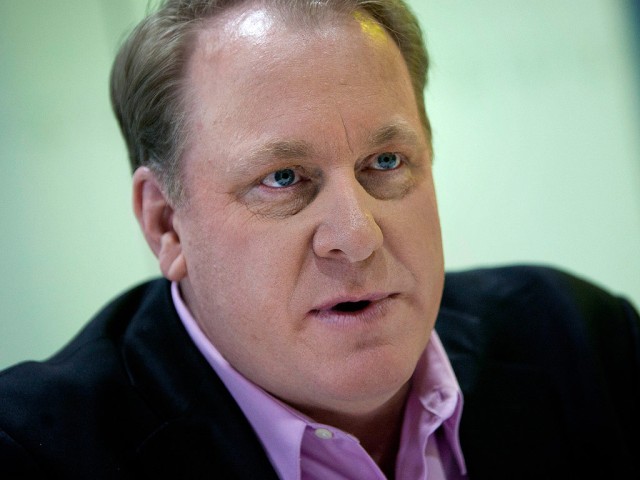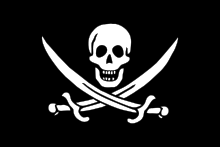
Earlier this week, former Boston Red Sox pitcher and ESPN baseball commentator Curt Schilling offered up on his Facebook account an anti-transgender meme that has been making its rounds on the internet. In this particular meme (I’ll refrain from putting it on here because…UGH!), a rather unattractive man is wearing female clothing with the quotation beside him, “LET HIM IN! To the restroom with your daughter or else you’re a narrow minded, judgmental, unloving, racist bigot who needs to die!!!” Schilling shared the meme and, after a moment’s thought, deleted it, but not until after some people had screen-captured what he’d done.
To take it a step further, Schilling then stepped to his personal blog and tossed more gasoline on the raging fire. To give him credit, Schilling didn’t shy away from his personal beliefs (“There are things I have deeply held beliefs in, things that are core to who I am, things I am passionate about…whether you like that…or not is completely up to you.”), but he also had to know what was coming (more on this in a moment). That “other shoe” that Schilling might have been expecting came on Wednesday night when his employer, ESPN, terminated his contract, stating simply “ESPN is an inclusive company. Curt Schilling has been advised that his conduct was unacceptable and his employment with ESPN has been terminated.”
This wasn’t the first time that Schilling had stepped down this path. He was suspended after first Tweeting a meme that compared Muslims to the 1930s Nazis and, once ESPN kicked him off the broadcasts of the Little League World Series, followed up with a defensive post to another blogger that cost him the remainder of the Major League Baseball season (despite the factor that the post also defended the person who replaced him, former U. S. Olympic softball star Jessica Mendoza, against comments the blogger made). And this doesn’t count what other memes that Schilling shared over his Facebook feed.
Opinion over what Schilling has shared over his social media – this week and previously – takes an interesting course, one that requires some thought before making a statement. Plenty of people believe that Schilling was simply “saying what a lot of us are thinking. Apparently you can’t have an opinion at ESPN if that opinion isn’t a liberal opinion.” Others believe that Schilling will be quite happy on the unemployment line (probably not; Schilling’s video game company, 38 Studios, filed for bankruptcy protection in 2012 and Schilling has sold off personal memorabilia to cover his expenses), saying, “Who would want to work for a company that would punish you for telling the truth?”
There are those that take the other side. “Schilling’s freedom to say what he wants hasn’t been denied; the government has not punished Schilling for what he said,” one person stated. “ESPN, however, has the right terminate his employment.”
That is the key point that many are missing with this situation. Schilling has all the “freedom of speech” rights in the world. The government cannot come after him and tell him “you can’t say that, Mr. Schilling, otherwise we will have to put you in jail.” It is one of the tenets of the First Amendment that allows everyone the right to speak out about…well, whatever they feel are the injustices of the world.

What many seem to forget, however, is that with the freedom of speech also comes the consequences of that freedom. For example, it is allowable to be able to burn the U. S. flag in protest (and to dispose of it, but that’s another story), encoded by the U. S. Supreme Court decision Texas v. Johnson (1989). While you can go ahead and burn the flag, you also have to accept the consequences of what might happen if you do that; in some cases, there may be a major league ass-kicking that comes along with it…not condoning physical violence, but it is a potential consequence. In Schilling’s case, he perfectly has the right to freedom of speech, what he forgot was the consequences part.
ESPN is a part of the massive Disney empire, which is the target of boycotts by one organization or another probably several times a day, 365 days per year. They try to minimize those issues by offending as few people as possible with the multitude of entertainment options that they provide (this is probably why they chuck the Disney girls who come up through their shows out before they go wild…look at the recent arrests of Debby Ryan and Kelli Berglund and let’s not even get into Christina Aguilera and Britney Spears). Thus, when someone continually chafes their audiences through poking the proverbial bear with their social media actions (as Schilling has done here and in the past), there comes a point when ESPN can decide enough is enough and remove the problem by dismissing the person.

It isn’t the first time that ESPN has done something along these lines. After a profanity-laced tirade at a roast for Mike and Mike hosts Mike Greenberg and Mike Golic in which she went off on Golic’s alma mater Notre Dame by saying “Fuck Notre Dame, fuck Touchdown Jesus…and fuck Jesus,” former ESPN anchor Dana Jacobson was suspended for a week from the ESPN airwaves after irritating the Catholic League. Commentator Stephen A. Smith was suspended for his comments on domestic violence and SportsNation host Max Kellerman earned a suspension for his comments on the same matter. These barely even broach the suspensions and/or firings that have been handed out by ESPN in its history for “freedom of speech” violations.
Freedom of speech is a guaranteed right under the U. S. Constitution, but it is only guaranteed when you are speaking about the government. You can criticize the President, Congress, our military actions (or lack thereof), our political directions and decisions or an array of other things and there isn’t a thing that the government can do about it. They cannot come to the street corner where you might be ranting about these things, they cannot censor what you write on the subject and they certainly cannot arrest you for what you’ve said (within reason, of course…advocating for armed treason is one of those areas that they might have actionable cause).
When it comes into the private arena, however, the game completely changes. A company can (and does) look into your personal background, your social media (some companies nowadays ask for your social media names, at the minimum; state and federal legislatures are trying to prevent this) and monitor for where their employees might discuss the company. If this is a surprise to you, I’ve got a story that will emphasize the point for you from more than 15 years ago.
While working in the public sector, I worked with a gentleman who went into an online chatroom and discussed the company we worked for at great length. Needless to say, he wasn’t exactly glowing in what he said about our company as he detailed out what he felt were problems that the organization had. Although he thought he had an online ‘handle’ (screenname) that would prevent him from being identified (they could trace ISP addresses, even back then), the company found out who it was and terminated him immediately, despite his protests of “freedom of speech” (this is an old refrain).

How many of us would be willing to lay our social media accounts in front of our employer and let them have a look at what we think and say? How many of us would be able to pass the scrutiny of such an examination that our employer wouldn’t have to dismiss us out of protection of their organization? I’ll be the first to say I’m probably not perfect as to some of what I’ve written on social media; I wonder how many people who read this can be that honest.
So it isn’t the factor that Schilling’s freedom of speech is being violated. It is a factor that Schilling didn’t consider the consequences of what his freedom of speech might bring onto the company he represents. For those who contend that a “liberal company” is “silencing” a “conservative” thought, it isn’t that at all; it is a business looking to protect its bottom line by eliminating a loose cannon that could cost it money, plain and simple.



